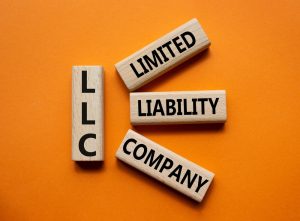
Before gold was discovered at Sutter’s Mill, California was little more than a backwater with a sparse, widely scattered population. Historians estimate that the total population of California in 1848 was between 2,000 and 8,000 people of European descent and approximately 100,000 Native Americans. Within a year of the first gold strike, an estimated 90,000 people had descended on California, and by 1855, at least 300,000 more people had arrived. Although some prospectors became extremely wealthy, they were the exception rather than the rule. Once the river gold and hillside deposits were exhausted, it was virtually impossible for an individual to excavate enough gold by hand to become rich. Companies with the financial wherewithal to hire workers soon came to dominate the gold fields.
Not everyone who came to California planned to prospect. Many of the new arrivals found that it was much easier and safer to get their gold from the pockets of miners than to dig it out of the ground. These were some of California’s earliest entrepreneurs. They founded hotels, retail stores, restaurants, newspapers, laundries, banks, saloons, shipping companies and entertainment venues. They sold mining tools, clothing, tents, firearms, food and lumber. Many of these entrepreneurs achieved great success, including Levi Strauss, Phillip Armour, John Studebaker, Leland Stanford and Samuel Brannan.
Entrepreneurs continued to flourish throughout the 1900s. California became internationally known for its movie industry, innovative technology companies, wineries, financial institutions and scientific research facilities. Famous entrepreneurs from the 20th century include Howard Hughes and Steve Jobs.
Entrepreneurship is still alive and well in the 21st century. In 2010, California had more millionaires than any other state. California’s economy is also thriving. In 2018, if California had been an independent nation, its gross domestic product would have been the fifth-largest economy in the world. However, there are a few things you need to know about starting a business in California.
1. You will need a business address. Many California businesses are home-based businesses. If you plan to use your home address as your business address you might want to consider the potential problems with doing that – privacy, laws, permits, etc. A California Virtual Business Address might be a better option.
2. You will need to obtain an Employer Identification Number, or EIN. This number is assigned by the Internal Revenue Service, and you can apply for your EIN online. The federal government uses your EIN to track your payroll tax deposits and company income tax filings. You will have to furnish this number to obtain many of the licenses and permits you will need for your business in California. You will also need this number to open a bank account or apply for credit in the name of your business.
3. You will need a general business license. These licenses are issued by the city in which a business or branch of a business is located. Some cities refer to this license as a business tax certificate. If your operations are in an unincorporated area, you will need to obtain the license or certificate from the county. Furthermore, if you operate in multiple locations, you may need to secure a business license from every city or country in which you have a location. For example, if you have locations in Sacramento, San Francisco and an unincorporated area of Marin County, you would need to apply for a license with the cities of Sacramento and San Francisco as well as with Marin County.
4. If you plan to use a name other than your legal name, you will need to register your fictitious business name with each county in which you will be operating under that name. A fictitious business name is also known as a “doing business as” filing. However, if you are going to operate a sole proprietorship and use your legal name, there are no registration requirements.
5. If you plan to structure your business as a corporation, limited liability company, partnership or nonprofit organization, you will need to complete the appropriate forms and file them with the California Secretary of State.
6. All businesses selling tangible goods must obtain a Seller’s Permit. This allows you to collect sales tax and file the required reports.
7. If you have even one employee, you must register with the Employment Development Department. When you register, you will be assigned a State Employer Identification Number, which you will need to deposit the state income taxes you withhold from employees, file returns and report new hires.
8. Depending on the nature of your business and its location, you may need other types of permits and licenses. For example, a day care center needs a child care license, a restaurant needs a health permit, and most hotels will need annual inspections by the local fire department. In some jurisdictions, you may need to obtain a special license or permit from the police department if you are a pawnbroker, have a burglar alarm, are a dealer of used goods, or sell firearms and/or ammunition. Most jurisdictions require a building permit if you plan to remodel, and you will likely need a construction project for a new building or an addition to an existing one. Some jurisdictions require a certificate of occupancy, signage permit and/or zoning permit.
9. If you have one or more employees, you must purchase workers’ compensation insurance, and you cannot ask your employees to contribute to the cost of the insurance. You are also required to withhold contributions for disability insurance and remit the funds to the state. Unemployment insurance is also mandatory, and you cannot ask employees to contribute to this expense.
Starting your own business can be exciting, but you should make sure that you have all of your permits, licenses and filings in place before you open your doors. Take the time to do it right so that you do not encounter any unpleasant surprises in the future.



